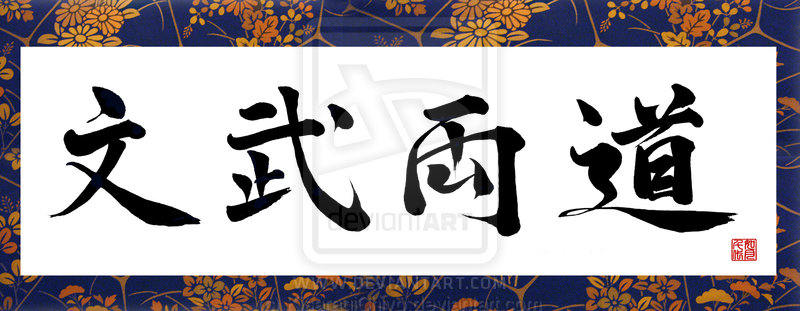Becoming cultured, literate and armed

Becoming Bun:
Benevolence
Stand Out Amidst The Literary Elite To Save Our Nation.
written by bunpeiris

We, The People, Must Become Bun: Cultured, Literate & Armed
Today Sri Lanka being under the hammer of western powers and Sinhalese being one of the endangered species of the world, as bun, among many others profess that is, it is high time for the island nation, in spite of the regime, to adopt Japanese Samuari Doctrine of Bushido for its survival: BUN BU RYŌ DŌ; we must become bun: cultured, literate and armed with erudition and eloquence. That is to say, all patriotic Sri Lankans need to get ready for the transformation with literary arts [compulsory English language & literature] and military arts [compulsory state military training] in equal measure, when the next government is formed. Sri Lanka has already wiped out the terrorist movement proving its competence in military arts under the unwavering direction of the lion-hearted ex-president. And now, Sri Lankans ought be literate in English to rescue the war heroes from Tamil diaspora led international persecution. You only have to ask those who have once done it [Dr. Dayan Jayatilleka], how can it be done in the future. All of us must strive to stand out amidst the Literary Elite, in spite of the regime hell bent to scuttle the already rudderless boat of education of Sri Lanka. While the defence forces need to be strengthened to withstand an onslaught such as Vietnam bore for couple of decades against the Americans, the literary elite must learn to fight against the tyranny, international as well as the home-grown, with pen. The masters of literature, being steeped in humanity, fighting against the tyranny hasn’t been a recent phenomenon; the history goes back to the classical Greece. One thing Aeschylus [525/524 – c. 456/455 BC], the father of Greek tragedy could not abide was tyranny. A Democrat through and through, he believed tyrants are to be defied and fought. With pen and sword, the life of Aeschylus exemplifies this philosophy: he himself took part in his city’s first struggles against the invading Persians; he composed no less than seventy dramas of which only seven have survived.
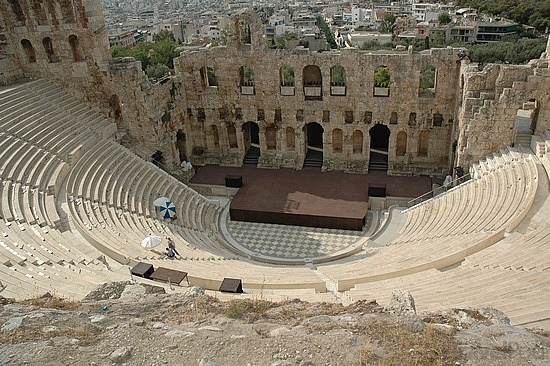
We The People, Must Become Literate in English
The most impressive answer ever to the question why should we, the suppressed class, become literate in English, is voiced by a very ordinary parent: to prevent us, the suppressed class from being fooled/misled with a distorted copy of the document, instead of the true translation of the documents in English language.
We The People Must Follow Bun Bu Ryo Do
Bun Bu Ryo Do is the twofold path of pen and sword. The samurai were successful for so long because they studied both cultural and martial arts. They mastered both the pen and the sword, making them formidable intellectual and military opponents.
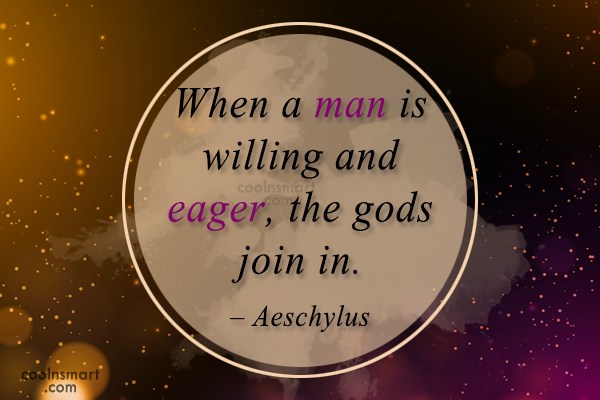
We The People Must Contribute In Our Capacity
Having said that, I must hasten to add that not all of us would find favourable circumstances to master both pen and sword. Nevertheless one’s contibution to the nation cannot be undervalued since all depend upon the labour of all: “Every man has his use, even if only to gather dried cow dung in the Gobi for fuel” Chinggis (Ghengis Khan)
We The People Must Know a Prince From A Puppet
Being literate in English would enable to us to read original sources of all the subject materials of any field. The knowledge in literature, world history together with Sinhalese history and political science would enable us to see the world and our motherland in a broader perspective.The hero of the nation is King Dutugamunu. It wasn’t the Hero of the nation, King Dutugamunu’s great army led by ten commanders alone that rescued the Sinhalese nation and Buddhism: it was also the farmers who produced rice; it was also the blacksmiths who produced swords; it was woodsmen who provided firewood; it was whole of the island nation which contribute towards saving the nation from the marauding Dravidian invaders. It was a collective effort tempered by the courage of a Lion of a Man: King Dutugamunu then. So is Mahinda Rajapakse today. Such is the case with him too: a lion of a man, the lion-hearted Sri Lankan patriot with a Sinhalese Buddhist outlook, who wouldn’t kowtow to the west, would only worship his motherland. He gave the political leadership & moral concept to the state. He galvanized the defence forces. He inspired the nation.
We The People Must Know of our heritage, culture and history.
Unless we are immersed in our history, our culture and our heritage, we will fail to grasp our values and means for our survival. To realise the ignorance, the pathetic state of the politicians today,we only have to listen to the news from the Island In the Stream [where Princess Samudra Devi was drowned by her husband, Commander Veediya Bandara reminding us of the tragedy, Othello, in which Desdemona was smothered to death by her husband, the Moorish Commander].
 |
|
| The Lifeline of The Nation During the Rajapakse’s reign, Sri Lanka, has been self-sufficient in rice to such an extent that even during the last global recessions in 2008–09, it failed to cause even a tremor in the island. If not for lifeline to the nation, the ‘Water World’, the greatest wealth of the nation, the great network of ancient rainwater reservoirs, we too would have suffered, if not precisely like an East African country, at least like Cambodia during the Vietnam war. Now, the descendents of the marauding Dravidian destroyers of great kingdoms of Anuradhapura and Polonnaruwa, who have no reverence to our Sinhalese heritage, i.e. Reservoir, Buddhist Temple & Stupa, instead of supporting the paddy cultivation in the agricultural nation calls for importing rice from India. |
The Symbol of Prosperity and Purity Kiribath cooked of rice and coconut milk is the pride of the dining table in all occasions of Sri Lanka. Kiribat reminds the Sinhalese of their cultural heritage: Kiribat is a symbol of prosperity [rice] and purity [coconut milk]. The consumption of rice as the staple diet and cultivation of paddy as the main production of the agricultural nation, now the regime has withdrawn the subsidised manure for paddy cultivation, in an attempt to scuttle the nation’s self-sufficiency in rice. Since independence in 1948, Sri Lanka has been striving to make the land self-sufficient in rice: First Prime Minister of Free Ceylon, D.S. Senanayake had the Senanayake Samudra modern reservoir built; J. R. Jayawardana had the Great Mahaweli River diversification scheme launched. |
We The People Must Become BUN BU RYŌ DŌ
The first character bun(文) means ‘culture’ or ‘literacy’,the second character bu(武) means ‘fighting’ or ‘martial power’.
The third character ryō(両) means ‘both’, and the last character dō(道) means ‘way’.
Therefore, this phrase means culture and martial spirit (prowess), both ways together. Bunbu Ryōdō is also known as a motto of Japanese Samurai who cultivated their personal development in addition to their training in martial arts.
We, The People, Must Know Bushido
The principles/ideals now widely known as Bushido had already begun to evolve by the 8th century AD, when the term bushi was used to evolve by the 8th century AD, when the term bushi was used to refer to the educated warrior-poet ideal that later became synonymous with the samurai. This ancient ideal of the warrior-poet was encapsulated in the pictogram for the word uruswashii (an early term for samurai) which combined the characters for bun (literary study) and bu (military arts), whereas early usage of the word samurai (meaning ‘those who serve in close attendance to the nobility’) was reserved for a particular class or rank of public servant-it did not become associated with military men until several centuries later. A distinct aristocratic military class came into being in the late 12th century during Kamakura Shogunate and evolved over subsequent centuries to fulfil the ideal expressed in the ancient saying Bun Bu Ryo Do–literary arts and military arts in equal measure.’ Over time this aristocratic warrior or samurai class developed a distinctive culture of its own, which in turn influenced Japanese culture as a whole-the tea ceremony, monochrome ink painting, rock gardens and poetry were all inherited from the samurai.
A quick glance at the principal sources of Bushido outlined by Inazo Nitobe [1862–1933] Shintoism, Buddhism, Zen and the teachings of the Chinese philosophers Confucius and Mencius-suggests that the Way of the Samuari incorporated a strong spiritual element. Further evidence for this is to be found in the chapters dedicated to the moral qualities that moulded the character of the samuari-rectitude or justice, courage, benevolence, politeness, veracity or sincerely, honour, loyalty and self-control –for the genuine attainment of these qualities necessitates a diminution of the ego similar to that advocated by any spiritual path. John Baldock in his introduction to Inzo Nitobe’s “The Way of the Samurai”
 |
 |
Bun, mon – culture, literature, sentenceReading: bun (alone and combined), mon (combined) Meaning: culture, literature, writing, sentence Examples: 文 – ぶん – bun – sentence 文化 – ぶんか – bunka – culture 文部省 – もんぶしょう – monbushou – ministry of education, culture and sports |
Category: simple pictogram
Origin: see picture below. This character started as the drawing of a man with a tattoo on his chest. The tattoo represented the idea of ‘design’ and by extension of ‘writing’, ‘literature’ and ‘culture’. As it simplified the tattoo itself disappeared from the character. |
He, The Ruler Must Extend Benevolence Towards All Races Equally
Bushido recognises benevolence as the supreme virtue of a ruler, the highest of all the attributes of the human soul. Do we see mercy to our countrymen?
William Shakespeare’s The Merchant of Venice: mercy
The human concept of Justice will not be delivered unless the man-made tool of law is tempered with divine virtue of mercy. bunpeiris
|
PORTIA
The quality of mercy is not strained.
It droppeth as the gentle rain from heaven
Upon the place beneath. It is twice blessed:
It blesseth him that gives and him that takes.
‘Tis mightiest in the mightiest. It becomes
The thronèd monarch better than his crown.
His scepter shows the force of temporal power,
The attribute to awe and majesty
Wherein doth sit the dread and fear of kings,
But mercy is above this sceptered sway.
It is enthronèd in the hearts of kings.
It is an attribute to God himself.
And earthly power doth then show likest God’s
When mercy seasons justice. Therefore, Jew, consider this.
|
PORTIA
No one shows mercy because he has to. It just happens, the way gentle rain drops on the ground. Mercy is a double blessing. It blesses the one who gives it and the one who receives it. It’s strongest in the strongest people.
It looks better in a king than his own crown looks on him.
The king’s scepter represents his earthly power, the symbol of majesty, the focus of royal authority. But mercy is higher than the scepter. It’s enthroned in the hearts of kings, a quality of God himself. Kingly power seems most like God’s power when the king mixes mercy with justice. So although justice is your plea, Jew, consider this.
|
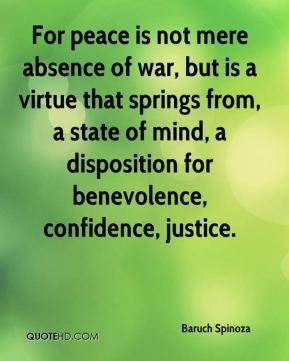 |
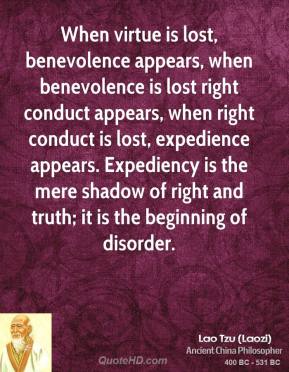 |
Bushido finds benevolence a princely virtue in a twofold sense: princely among the manifold attributes of a noble spirit; princely as particularly befitting a princely status. Bushido needs no Shakespeare to feel benevolence at all. But then perhaps, like the rest of the world, Bushido too needs William Shakespeare to express it:“It looks better in a king than his own crown looks on him.”



